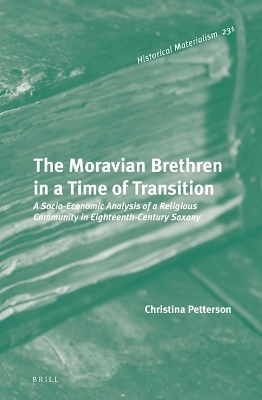Historical Materialism Book
1 primary work
Book 231
Based on hundreds of archival documents, Christina Petterson offers an in-depth analysis of the community building process and individual and collective subjectification practices of the Moravian Brethren in eighteenth-century Herrnhut, Eastern Germany between 1740 and 1760.
The Moravian Brethren are a Protestant group, but Petterson demonstrates the relevance of their social experiments and practices for early modernity by drawing out the socio-economic layers of the archival material. In doing so, she provides a non-religious reading of categories that become central to liberal ideology as the Moravians negotiate the transition from feudal society to early capitalism. As such The Moravian Brethren in a Time of Transition combines archival analysis with socio-economic change.
The Moravian Brethren are a Protestant group, but Petterson demonstrates the relevance of their social experiments and practices for early modernity by drawing out the socio-economic layers of the archival material. In doing so, she provides a non-religious reading of categories that become central to liberal ideology as the Moravians negotiate the transition from feudal society to early capitalism. As such The Moravian Brethren in a Time of Transition combines archival analysis with socio-economic change.
